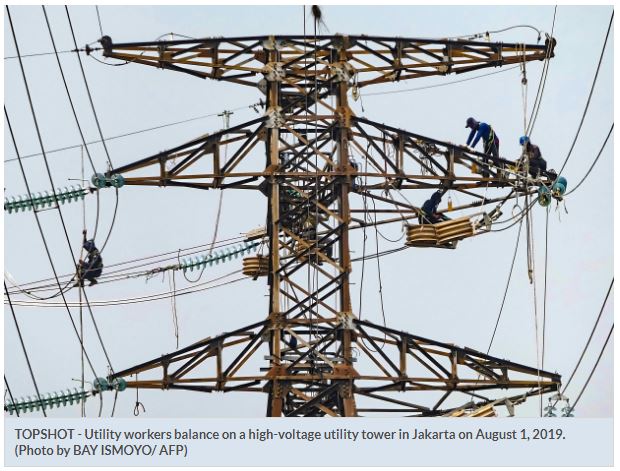Indonesia Q2 GDP growth meets estimates
JAKARTA: Indonesia’s economic growth rate remained around 5% in the second quarter and was the weakest in two years, highlighting the difficulties it faces accelerating GDP expansion amid global uncertainties.
South-East Asia’s largest economy grew 5.05% in April-June, a touch cooler than January-March’s 5.07%, the statistics bureau said yesterday.
The pace matched the forecast in a Reuters poll.
During the quarter, President Joko Widodo was re-elected to a second five-year term in a hotly-contested election.
Widodo has been trying to lift growth well above 5%, the pace Jakarta has seen since the end of the commodities boom, by investing in infrastructure and giving tax breaks to lift manufacturing.
However, with the country still reliant on natural resources, low commodity prices, bouts of global market turbulence and tepid investment levels have undercut efforts to lift growth.
Fakhrul Fulvian, an economist with Trimegah Sekuritas in Jakarta, called the second quarter pace “positive”, arguing that other emerging markets also have slowdowns.
The rupiah and Jakarta’s stock index did not move much after the announcement. The rupiah was down 0.5%, while the equity benchmark was off 1.5% amid broader Asia weakness due to the escalating US-China trade war.
Household consumption, which accounts for more than half of gross domestic product (GDP), expanded 5.2% in April-June compared with 5% the previous quarter.
However, investment growth, the second engine of growth, remained at the sluggish 5% seen in January-March, the softest increase since early 2017.
Exports continued to contract in the quarter, amid weakness in global trade.
The mining sector saw a 2.7% on-year contraction in the quarter, the first since January-March 2017.
Wisnu Wardana, an economist with Bank Danamon, said private and government consumption got a boost from election-related spending, but investment remained a laggard
“Policymakers will want to utilise all possible instruments at hand to support growth, including through monetary channels, ” Wardana said
In a bid to aid growth, Bank Indonesia (BI) cut its key rate 25 basis points (bps) last month, which many analysts see as the start to an easing cycle to reduce borrowing cost.
In 2018, BI hiked the key rate six times, by a total of 175 bps, to support the fragile rupiah.
The government has unveiled tax breaks for some industries, with Widodo promising a corporate tax cut, hoping for bigger capital expenditures by companies trickling down to bolster GDP growth.
Before the second-quarter data, BI predicted a growth rate of below 5.2% in 2019. The government’s 2019 target is 5.3%, but officials have said it is more likely to be 5.2%. — Reuters
Source: https://www.thestar.com.my/business/business-news/2019/08/06/indonesia-q2-gdp-growth-meets-estimates#f1moezOHUIJEQyPw.99


 English
English




